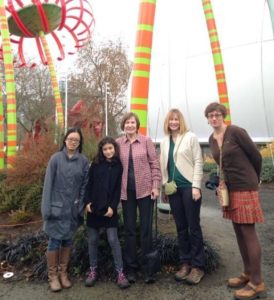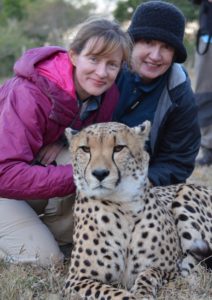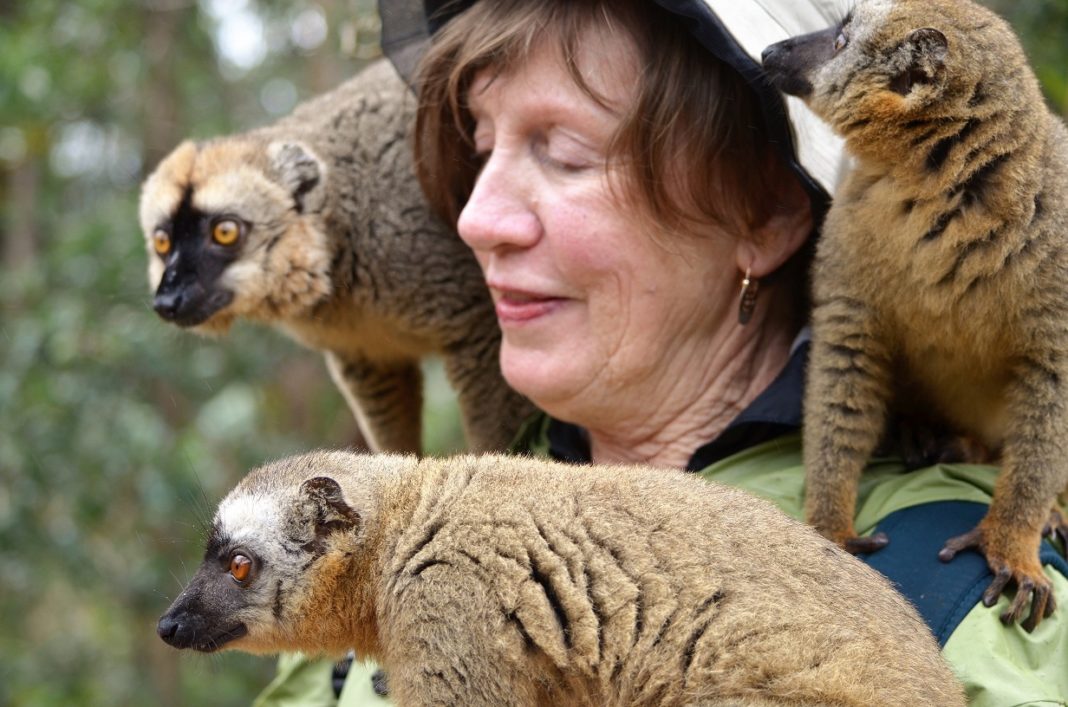Patricia Dunsmore loves going to school. “The first thing you should know about me is that it took me 23 years to get my Associate of Arts degree,” she says.
 Dunsmore, an English professor at South Puget Sound Community College (SPSCC), is retiring at the end of Winter Quarter, 2017. For the last 15 years she has taught nine classes per year with 25 students enrolled in each class. Tally up those numbers, and you will realize that 3,375 SPSCC students have studied with an educator committed to both the teaching of writing and the development of lifelong learners.
Dunsmore, an English professor at South Puget Sound Community College (SPSCC), is retiring at the end of Winter Quarter, 2017. For the last 15 years she has taught nine classes per year with 25 students enrolled in each class. Tally up those numbers, and you will realize that 3,375 SPSCC students have studied with an educator committed to both the teaching of writing and the development of lifelong learners.
“These kids are our future,” Dunsmore said.
She believes it.

As a member of the college faculty, she advocated for more student jobs on campus. She explained that the longer you keep a student on campus, the more they feel they belong. It is as simple as not having to travel off campus for a job that pays money but is separate from the learning environment. The administration at SPSCC listened to Dunsmore’s pragmatic reasoning, and the college increased the number of student jobs and expanded the scope of student jobs across campus. Maintaining the college grounds could lead to a degree in landscape design; food service support in the campus eatery might spark an interest in hotel and restaurant management; and then there are jobs in the school library — those are the ones Dunsmore believes have the most promise.
“Libraries — people do use them and they matter,” Dunsmore said.
Students in Dunsmore’s classes learn formal writing. They write a letter applying for a future scholarship. It is a real-life scenario and the perfect opportunity to stress the importance of knowing your audience. They learn strategies of persuasion and clear intentions. Students also visit a college art exhibit and develop a paper describing not only the visual aspects but the contextual ones as well. Eleven weeks later, at the end of the quarter, students write their final research papers, incorporating all the writing skills they have learned. But it is not just their writing that has changed, it is also the way they think, discuss and learn.

“They need context,” Dunsmore commented. “We were studying Frederick Douglass, and we talked about how African-American men were allowed the right to vote after the Civil War. I asked them when women got the right to vote, and they didn’t know. When I said 1920, they all leaned forward in their chairs. They couldn’t believe the difference in time. Just that one question changed our discussion entirely. For some students I could see a light was on that had not been there before.”
Dunsmore loves it when the energy changes in her classroom. “I tell students there is a difference between having an education and being educated. For myself, it’s more important to be educated than to have an education. If I am constantly learning about new ideas and issues, my education will never stop. It will always grow, and I will too.”

Students have a way of finding Dunsmore’s office for help with their writing, and often, help with their lives as well. “Sometimes a student will say they don’t know what to do about their future. I always get excited and shout GOOD! You have more possibilities coming your way if you stay open and keep learning,” Dunsmore said with a grin.
Dunsmore is an exacting teacher with high expectations. Occasionally a student will fail her class, but she is clear and forthright in her conversations with them. “I tell them that failure isn’t fatal. They can figure out where they made mistakes and start again.”
Dunsmore opens the first day of every new class with the words, “Education is not rocket science. It’s harder.” Through each assignment students develop topics, elaborate on ideas, organize thoughts and write with clarity. Their newly-minted writing skills will help students in future classes, but Patricia Dunsmore hopes her students carry one more realization with them. She says, “You owe something back. Lifelong learning is your job as a citizen.”




















































